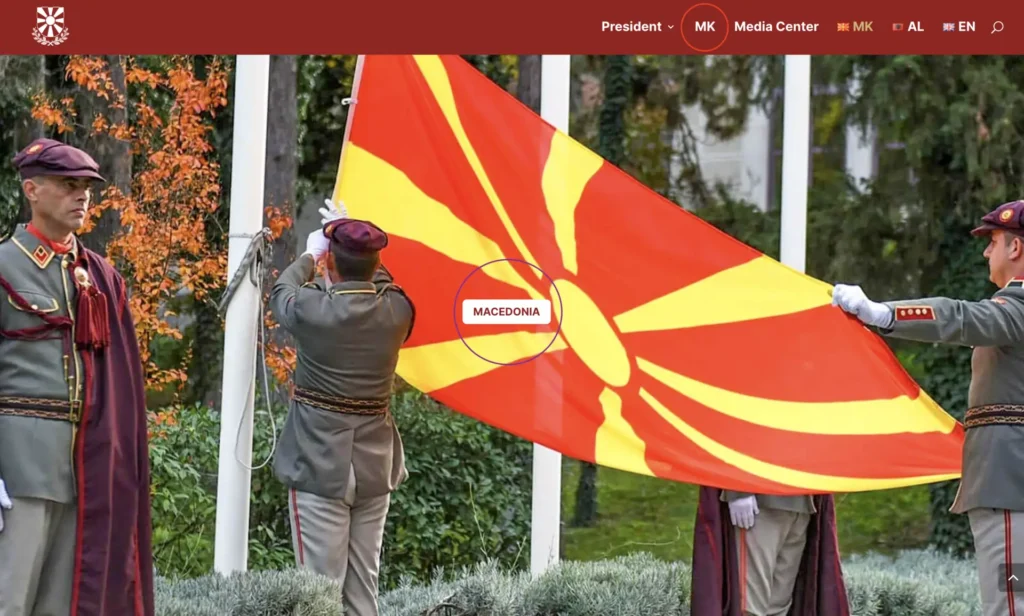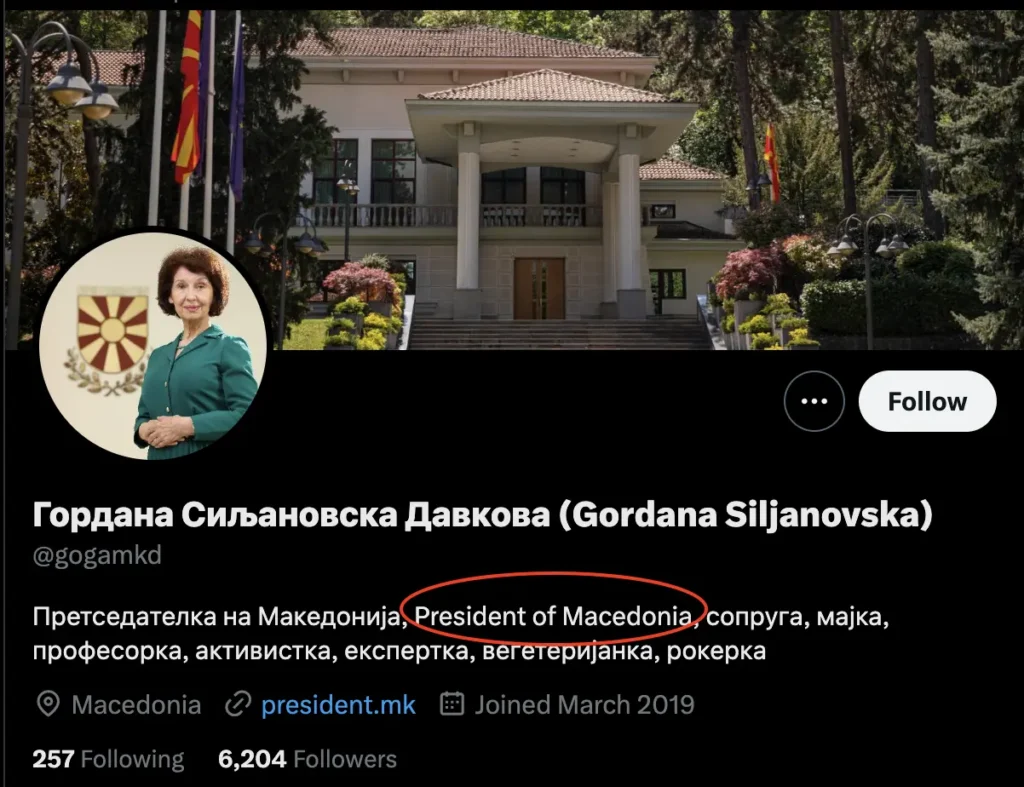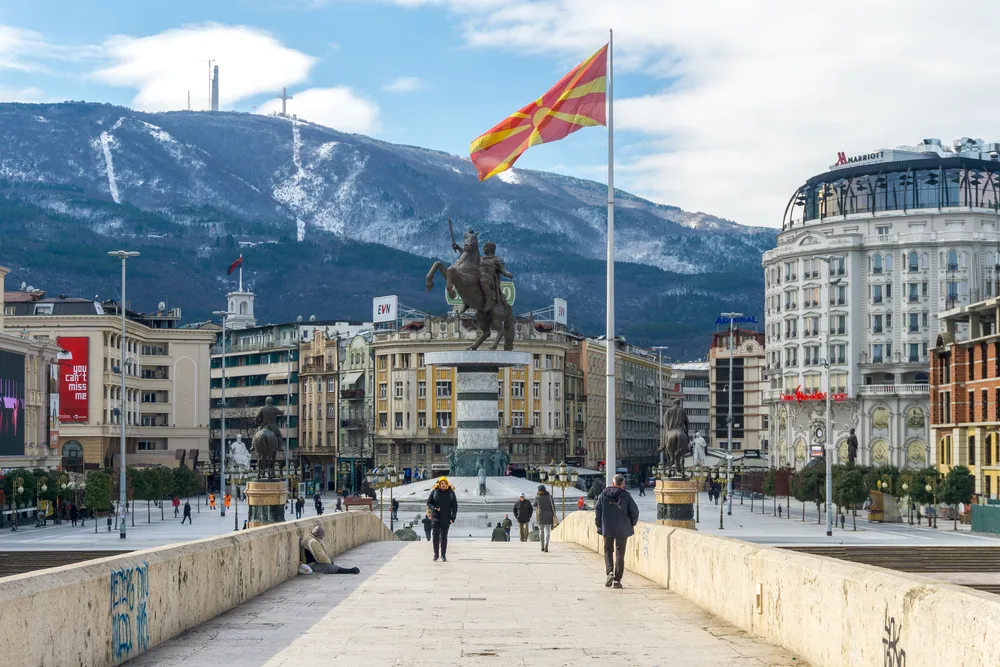The official website of the President of North Macedonia has ignited a diplomatic controversy by removing references to the constitutional name “North Macedonia” and replacing them with the abbreviation “MK” or simply “Macedonia.”

This significant change follows the recent election of President Gordana Siljanovska-Davkova, who stirred diplomatic tensions with Greece by referring to her country as “Macedonia” during her inauguration. This reference directly violates the Prespa Agreement, a landmark treaty signed in 2018 that resolved a long-standing dispute between Greece and what was then the Republic of Macedonia. The agreement stipulated that the country would henceforth be known as North Macedonia.
Historical snapshots of the presidential website reveal that, until at least May 15, the site prominently featured a link labeled “North Macedonia” in its header. This link has since been replaced with “MK,” though it directs users to a page titled “Republic of North Macedonia.” Additionally, a link on the homepage superimposed on an image of the national flag now reads “Macedonia” instead of “North Macedonia.” All references to “North Macedonia” have also been scrubbed from the footer links of the site.

In a further departure from the previous administration, the revamped website now exclusively uses the majority Macedonian language. This change eliminates the previously available versions in Albanian, spoken by about a quarter of the population, and English. Furthermore, all pages on the site mentioning the current head of state refer to her simply as “president” without any geographical designation.
On her X profile (formerly Twitter), Siljanovska-Davkova describes herself as “President of Macedonia, wife, mother, professor, activist, expert, vegetarian, rocker,” conspicuously omitting the “North” prefix from the country’s name.

The move has drawn criticism from international observers and could potentially strain North Macedonia’s relations with Greece. The Prespa Agreement, hailed as a diplomatic breakthrough, required North Macedonia to amend its constitution and change its name in exchange for Greece lifting its veto on the country’s NATO and EU membership bids. This recent action by President Siljanovska-Davkova’s administration is seen by many as undermining the fragile peace and cooperation established by the agreement.
In response to the controversy, Greek officials have expressed their concerns, emphasizing the importance of adhering to international agreements and maintaining regional stability. The removal of “North” from official references could be interpreted as a step back from the commitments made under the Prespa Agreement, potentially jeopardizing North Macedonia’s progress towards EU integration and NATO cooperation.












